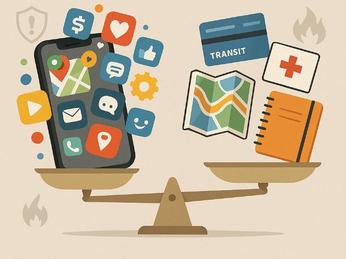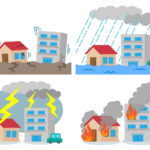This “multi-function vs. single-function” issue might also be considered a type of trade-off, similar to what we’ve discussed in the past two sessions.
Take smartphones, for example.
Nowadays, many people feel they can’t live without their smartphones. Everything is packed into a single device through apps.
As long as the phone is working well and in your possession, it’s incredibly convenient — it feels like you can go anywhere in the world with just your smartphone.
However, if the smartphone malfunctions, runs out of battery, gets misplaced, or is stolen, it becomes a serious problem.
Also, when too many apps are installed, it must be frustrating if you can’t quickly find and launch the one you need at the moment.
On the other hand, single-function devices exist for a “specific purpose,” so they are simple and effective when used for that purpose.
For example, with a single-purpose card, you don’t need to open an app — you just tap it.
But if you have many different purposes, you need to carry as many single-function devices, which becomes cumbersome and increases the risk of forgetting some.
In this kind of discussion, we can say that multi-functionality and single-functionality are indeed a trade-off.
Now, what if the “purpose” involves high-security matters, where identity theft or impersonation is absolutely unacceptable?
In the case of multi-function devices like smartphones, if they are stolen along with passwords, having app-specific authentication steps (such as multi-factor authentication) can offer some level of protection — though it makes everyday usage less convenient.
With single-function devices, the purpose is clearly defined, so if one is stolen, it’s very important that it cannot be used by someone else.
Looking around at the world today, we see increasing risks from natural disasters or geopolitical tensions.
In such times, it may become more important to physically possess critical personal information (such as data about family, health, and assets), just in case of emergencies.
This may seem ironic, considering how rapidly digital transformation and network technologies are advancing.
We are currently exploring what forms might be best for storing such sensitive personal information and plan to share our proposals when appropriate.
In the meantime, we encourage you to consider this as part of your own personal disaster preparedness.



